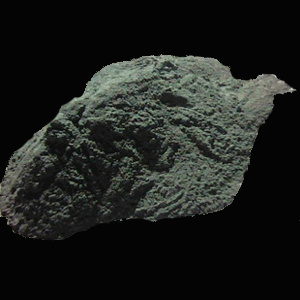[Ferro-Alloys.com] Russian steel company Severstal’s Q2 steel sales fell 200,000 mt, or 7%, on the quarter due to a coronavirus-induced steep drop in exports and a milder contraction in domestic sales, despite crude steel output only nudging down 2%, or 40,000 mt, the group said July 13.
The small production decline in April-to-June steel output was due to short-term maintenance works conducted at three of its four operational blast furnaces (BFs) at Cherepovets Iron and Steel Works (CherMK), according to the company’s Q2 trading update.
In the second quarter, BFs Nos. 1, 4 and 5 underwent several day-long scheduled repairs. As a result of lower pig iron output, the company’s crude steel production was 40,000 mt quarter-on-quarter lower at 2.8 million mt.
BF No. 2 was the only blast furnace operating non-stop throughout Q2, while the mill’s oldest BF, No. 3, has been out of action for over 13 years and is now being built anew with its complete revamp due for completion in 2022.
Year on year, Severstal’s Q2 steel production declined by 250,000 mt or 8%.
The fall in sales was much sharper, with the company shipping 2.55 million mt of steel in April-June, 7% less than in Q1. Year on year, its sales were 10% or almost 300,000 mt lower.
Quarter on quarter, Severstal managed to grow color-coated coil and large diameter pipe (LDP) sales, but sales of all other products fell.
The drop reflected lower production, elevated inventories and a larger portion of exports with longer lead times. Overall, exports comprised 44% of the total. Volume-wise, they amounted to 1.12 million mt following a 110,000 mt, or 10%, contraction from Q1. Year on year, they fell by 9.5% or 120,000 mt.
Q2 domestic sales, at 1.43 million mt, declined by 82,500 mt, or by 5.5%, from January-March in response to a demand slowdown during the lockdown period in Russia from late March through mid-May. In April-June last year, Severstal distributed 70% (1.99 million mt) of its output in Russia. This signifies that its Q2 2020 domestic tumbled 28%, or 550,000 mt, year on year, but this was largely due to the disposal in Q2 2019 of the Balakovo mini-mill, whose output was distributed domestically.
In Q2, Severstal maintained the share of its domestic steel sales at 55-56% of the total despite expecting at the beginning of the COVID-19 crisis to cut it to 51-52% versus the typical 66-70%, noted analysts at Moscow-based investment bank VTB Capital. As the result of such exposure to the domestic market, the company achieved slightly better prices, on average, than it could have, had its domestic sales been crimped further, the analysts added.
Balakovo disposal effect
In January-June, Severstal made 5.66 million mt of steel, down 7% year on year, with the contraction almost entirely due to the sale of 1 million mt/year Balakovo. In H1 2019, the electric arc furnace-based rebar mill added roughly 400,000 mt to the company’s crude steel production, but its results were fully deconsolidated from Severstal’s operational updates mid-2019.
The same factor was also behind a 7% year-on-year drop in the company’s H1 2020 steel sales to 5.32 million mt.
The fall reflects an 8% drop in rolled volume to 4.25 million mt, whereas the company ramped up semi-finished steel shipments by half to 292,000 mt. Having increased by 11% year on year, hot-rolled coil tonnage made up 45%, or 2.38 million mt, of the total steel sold in H1 2020.
Over the same period, plate sales saw a 3% uptick to 471,000 mt, wire products at 281,000 mt gained 6%, and pipes (excluding large diameter pipes or LDP) jumped 11% to 430,000 mt. Sales of all other products fell by double-digit percentages, with the deepest drops seen in LDP, rebar and cold-rolled coil (CRC). The company’s H1 LDP sales collapsed by 78% year on year to 44,000 mt, long-rolled steel (mostly comprised of rebar) halved to 373,000 mt and CRC sales fell by a fifth to 408,000 mt.
VTB Capital analysts said Severstal’s Q2 revenues could drop by around 11% to $1.6 billion, but the effect of lower volumes and prices may be partially offset by lower integrated slab cash cost, which may decrease similarly, by 11%, quarter on quarter, to $186/mt as a result of Ruble depreciation against the dollar and the company’s cost-cutting efforts.

- [Editor:tianyawei]



 Save
Save Print
Print Daily News
Daily News Research
Research Magazine
Magazine Company Database
Company Database Customized Database
Customized Database Conferences
Conferences Advertisement
Advertisement Trade
Trade













Tell Us What You Think